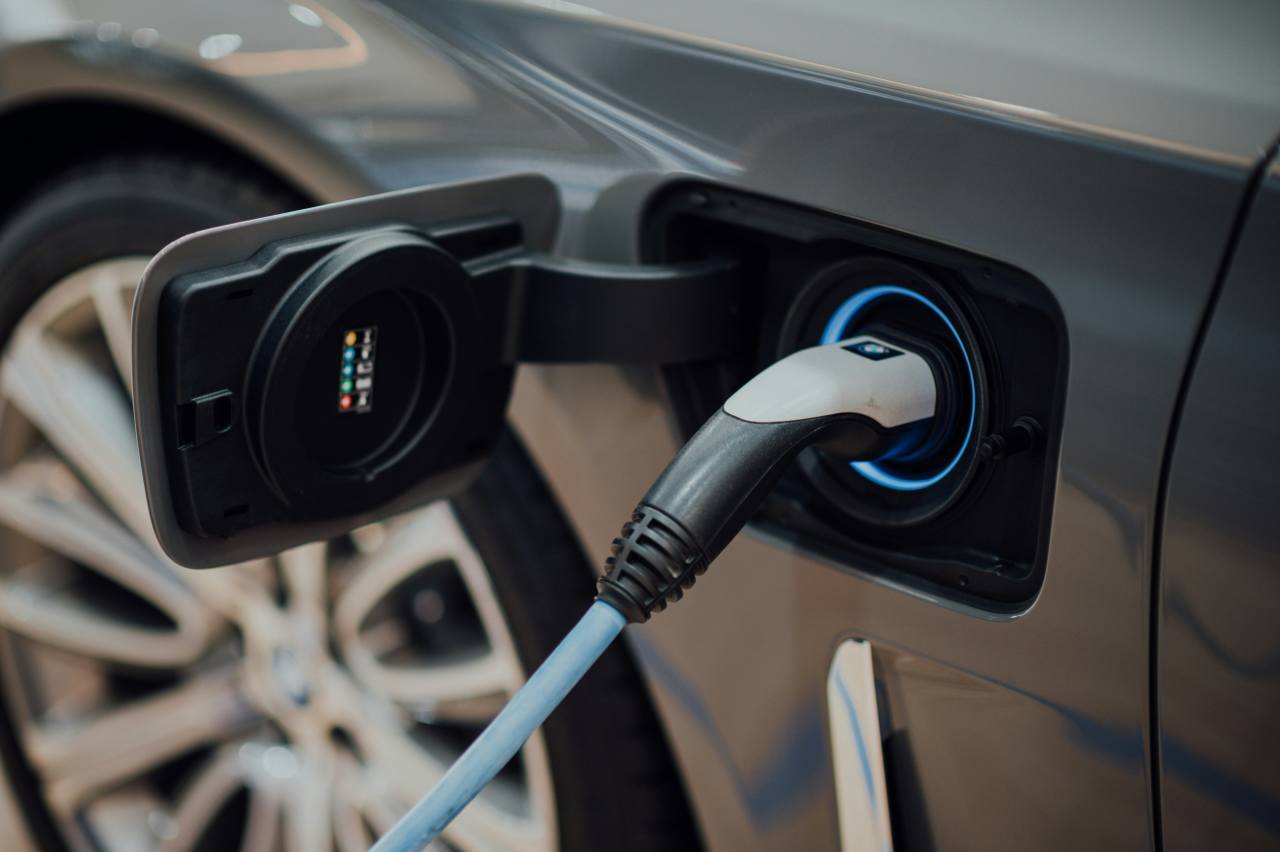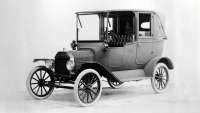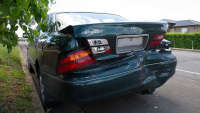Utes are as intrinsically Australian as a John Farnham comeback concert - we invented them, after all - so it’s no huge surprise to learn that the two best-selling vehicles here last year were the Toyota HiLux and the Ford Ranger.
With fossil fuels on the way out and the electrification of vehicles on the way in, a range of electric utes won’t be too far off for Aussie drivers.
Much like any other form of electric vehicle, electric utes will come with an electric powertrain and a lithium battery that does away with the need for petrol, unless it’s a PHEV (Plug-in Hybrid Electric Vehicle) that’s powered by both a battery and a traditional fuel tank.
The advantages of an electric 4x4 ute are obvious: you’ll save serious coin in regards to your fuel bill, it’s significantly better for the environment and you’ll also save money in the long-term due to the fact vehicles with less moving parts don’t require regular, and often expensive, repairs.
It’s not all great news for the electric utes in Australia though: any electric ute or electric 4WD in Australia would struggle under current conditions, due to Australia’s poor infrastructure for electric vehicle recharging stations and long distances between cities. Keep in mind, too, that there's a good chance you'll have to halve the range calculation once you've added a payload to the tray.
Still, changes in Australia are afoot, with top-selling Australian ute the Ford Ranger rumoured to have a plug-in hybrid (PHEV) model in the works. Mining vehicle company GB Auto, based in Orange, New South Wales, has signed a deal worth $327 million to convert a fleet of Toyota HiLux and LandCruisers into electric vehicles via a 72kWh battery system, which powers a 110kW/250Nm electric motor. Perfect for fleets looking to reduce their emissions footprint.
Chinese car maker BYD, which is off to a roaring start in Australia with its popular and affordable Atto 3 small electric SUV, even has an electric ute in the development stage.
In terms of electric utes that may become available to the public sooner rather than later, here’s a few of the best options.
1. Tesla Cybertruck
.jpg)
Price: $TBC
ETA: 2024 (“As long as it passes Australian regulations,” says Elon Musk)
While Tesla’s Cybertruck looks nothing like a ute and a whole lot like something you’d see in a straight-to-DVD science fiction film, the thing is classified as an all-wheel-drive “pickup” that’s capable of carrying a minimum of 1500kg in the tray and towing a minimum of 3400kg, with a claimed maximum range of 804km - an unheard of amount compared to other electric vehicles on the market. It’s going to have to have some enormous batteries. It’ll also get you to 100km/h in 2.9 seconds, allegedly, making its acceleration almost as absurd as its bodywork. Unfortunately for fans, there are many mixed reports about when the truck will be ready for full-scale production, let alone if it will ever be sold outside the US. In fact, the ability to pre-order one was pulled from Tesla's Australian online portal in early 2022.
2. Rivian R1T

Price: AU$105,959
ETA: Australia TBC
Amazon and Ford - two companies not short of a quid - have invested a cheeky billion dollars in US startup Rivian, which is a fairly enormous vote of confidence. The company’s flagship electric vehicle is the R1T, an electric double-cab ute that’s had a right-hand-drive version in development right from the get-go - good news for us. The electric Rivian ute has a “skateboard” all-wheel-drive electric platform using four motors, with three levels of battery capacity (105kWh, 135kWh and 180kWh) and three levels of power and torque, the most robust bringing 562kW and a staggering 1120Nm. If that’s not impressive enough, the R1T can do a pretty nifty party trick called a “tank turn” (basically spinning on the spot, although “tank turn” admittedly sounds way cooler).
3. GMC Hummer EV

Price: $TBC
ETA: Australia TBC
When General Motors, the US car-manufacturing titan that specialise in utes and SUVs, announce something that it’s calling a “super truck”, you’d better believe it’s only a matter of time before the new electric GMC Hummer EV is announced as the newest member of the Avengers. The off-road capable Hummer comes packing a 745kW tri-motor powertrain, and the ability to almost match the Cybertruck’s acceleration rate with 100km/h possible in three seconds, again, allegedly. While we haven’t seen a Hummer in Australia since the H3 made a brief appearance after a 2007 debut, fingers are crossed this super truck lands in Oz.
4. Chevrolet Silverado EV

Price: $TBC
ETA: TBC
On a new platform unrelated to the one which currently underpins the combustion Silverados which are sold in Australia (in surprisingly large numbers) after being converted by local operation, GMSV, we like the Silverado EV for many of the same reasons as its Ford F150 counterpart.
While the Chevy scores an advantage in range over the F150 (644km as opposed to the F150's 483km), as well as big V2L outputs for supporting power tools or even your entire home, there's no news on the potential for a right-hand drive version from the factory, nor has GMSV made any comment on whether they are interested in importing the big EV ute.
5. Ford F-150 Lightning
.jpg)
Price: $TBC
ETA: Australia TBC
The F-150 is the Big Daddy of all pick-ups, Ford’s biggest seller in the US and at some stages in history the best selling vehicle in the world.
It is huge, it is thirsty and it is powerful, and the idea of it being turned into an electrified vehicle seems to make no sense, and yet lots of sense. If Ford can make the F-150 work as an EV, its problems are solved the future truly is electric.
Ford have pulled off quite the stunt, then, by filming a video of the F-150 Lightning towing a trail of train carriages weighing a combined 450 tonnes (Ford admitted there was some poetic license involved). The Lightning launched in America with two battery sizes, providing either 370km or 483km of range, with peak motor outputs for its dual motor drivetrain capable of producing 420kW/1051Nm. It boasts a braked towing capacity of a whopping 4536kg and has a payload of 907kg. We can only hope rumors of an impending local right-hand drive conversion turn out to be true, but don't expect it to come cheap.
6. Fisker Alaska
.jpg)
Price: $TBC
ETA: 2025
Danish automotive designer and entrepreneur Henrik Fisker has been playing catch up in getting electric vehicles to market, despite having a history with EVs that pre-dates Elon Musk. The first SUV off the rank looks to be the Fisker Ocean, (which will be built by Magna Steyr in Austria using VW's EV underpinnings) with three other models - the Alaska ute being one of them - set to follow in a few years’ time. Fisker has already said the electric Ocean SUV will make its way to Australia, so it’s likely the Alaska will follow suit at some point.
7. GWM Ute EV
.jpg)
Price: $TBC
ETA: TBC
Taking a “does what it says on the tin” approach to naming its new electric ute is best, Chinese car manufacturer GWM (Great Wall Motors) is entering the EV game with a Toyota HiLux-sized vehicle that has e-motor outputs of 150kW and 300Nm and a range of 405km. GWM already sells utes in Australia, and has just launched its all-electric Ora passenger car sub-brand, so it’s not a stretch to expect local availability in the not-too-distant future.
8. Geely Radar RD6
.jpg)
Price: $TBC
ETA: TBC
Launched in China in Febuary of 2023, Geely's Radar is a new electric ute sub-brand, and the RD6 is its first model. Specifically targeted at adventurous buyers as opposed to trade fleets, the Radar brand has its sights set not just on China, but also the world, according to the brand's CEO Ling Shi Quan. The ute was designed in Geely's UK offices, and at over five meters long is comparable to the kind of mid-size utes which sell well in Australia.
The RD6 launched with three battery options, a 63kWh unit good for a claimed 400km range, an 86kWh unit good for a 550km range, and a 100kWh unit good for 632km, and has V2L features alongside a high level of cabin tech. However, initial launch versions are only available in rear-wheel drive, with a single motor producing 200kW/384Nm. Expect to wait for all-wheel drive versions for an Australian arrival.




.jpg)
.jpg)
.jpg)


.jpg)

.jpg)
 copy.jpg)
.jpg)

.jpg)
.jpg)


.jpg)
 (1).jpg)
 copy.jpg)
.jpg)


.jpg)
.jpg)

Comments